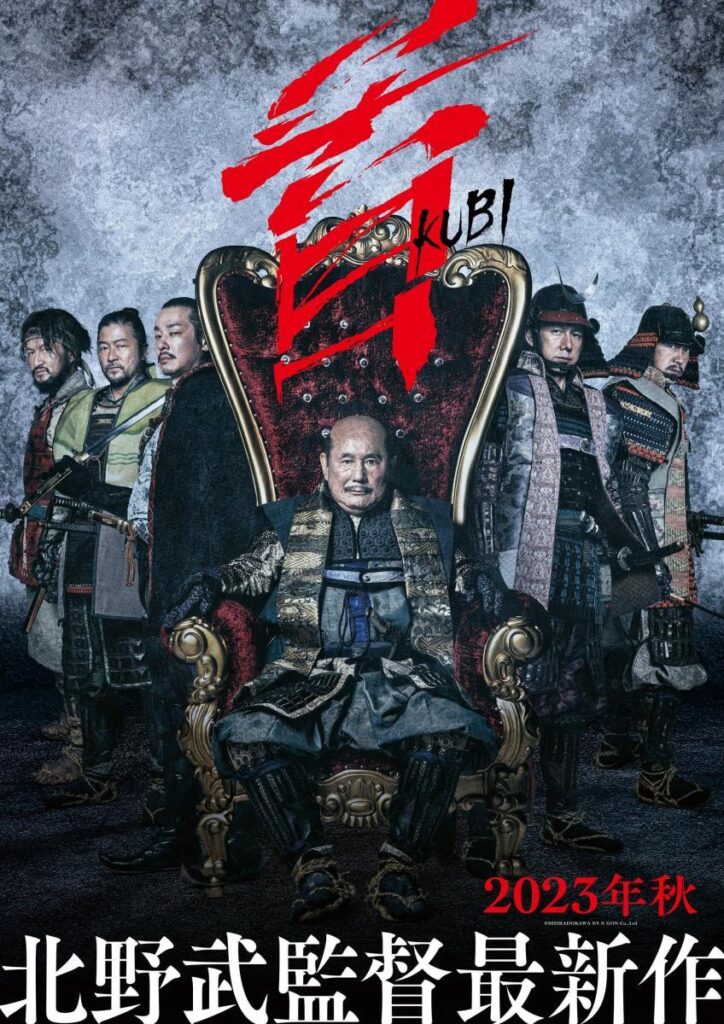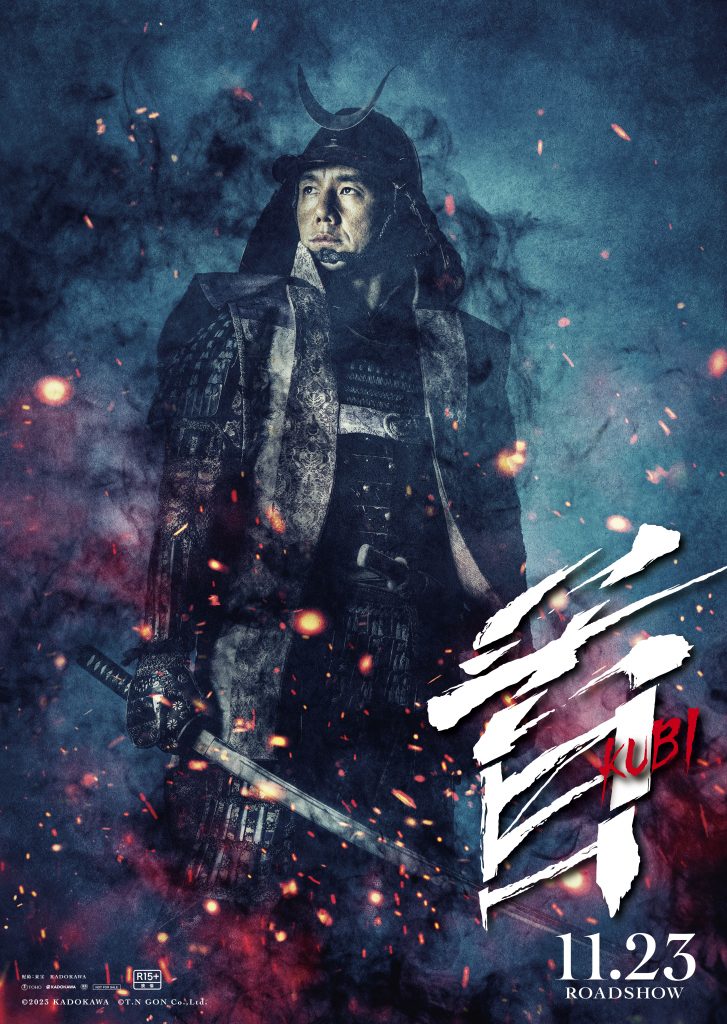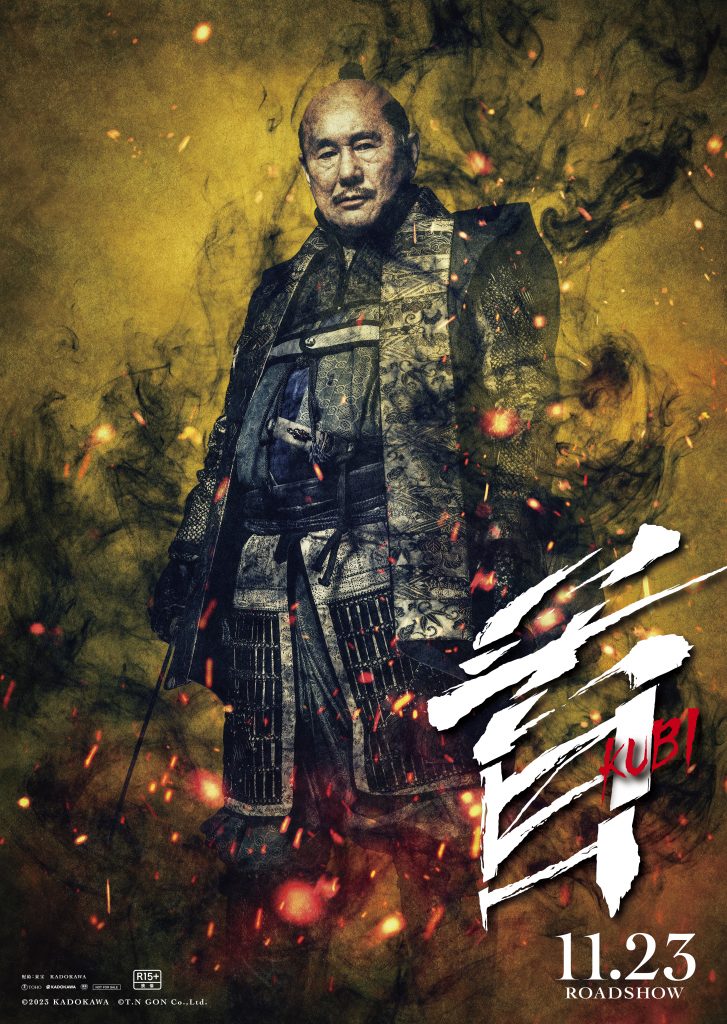
The warring states period, more specifically the campaign of Oda Nobunaga, is no stranger to adaptation. In anime, video games, literature, and film, you won’t have to look far for fantastical depictions of Nobunaga, Toyotomi Hideyoshi, Tokugawa Ieyasu, Akechi Mitsuhide, etc; and it’s not hard to see why. There is the obvious historical importance of the unification of Japan but beyond that the romance of the story and the larger than life reputation of the figures that makes it so intoxicating to creators.
There is the stern and ambitious military leader, the man who would be king if he was not struck down right on the brink of his final victory. Then there is his unshakably loyal vassal. A poor peasant who came from nothing, but through his military prowess, was able to distinguish himself. Finally, we have the treacherous retainer. The vile cretin who killed his master and tried to usurp his power, only to be killed for his barbarous ways.
Obviously, this is a bit ahistorical and melodramatic, but you can see, at least on the surface, why this period appeals to storytellers. This makes it somewhat bizarre that it took this long to get a film of this level of interest depicting the events of the Honnoji incident. What makes it all the stranger is the adaptation is being handled by such a provocateur as Takeshi Kitano.
Kitano is a true Renaissance man, but at least in the film space, he is distinguished for violent, off-putting, and darkly comedic yakuza films such as Hanna-bi, Sonatine, and Outrage. However, before any of those films were released, Kitano had the idea for Kubi. A bloody, over the top, and comedic retelling of the Honnoji incident. An iconoclastic take on one of the preeminent stories of Japanese history.
The most apparent divergence is the characterization of Japan’s favorite murderous warlord, Oda Nobunaga. Nobunaga is one of, if not the most utilized Japanese historical figures in modern popular culture. There are real-time strategy games about him, he has appeared in multiple anime and TV dramas, and He is even the main antagonist in a Pokémon spin-off game. While his characterization has not become standardized, (he falls into the Napoleon trap of whether to portray him neutrally or as a cold villain) interpretations do maintain certain common traits. He always has an exceptional military mind and a focused demeanor.

In contrast, Ryo Kases portrays Nobunaga as an unhinged psychopath. A sexual deviant who can only speak in crow-like screeches. A man who will execute you with little to no provocation and operates purely off the human id as opposed to any forethought. Though he is used sparingly, he provides most of the slapstick comedy, with him bullying and otherwise abusing his loyal retainers. He also grants a boisterous attitude to the proceedings along with his 2 young male servants. Both of whom he has unconcealed and exuberant sexual relations with. This is the most confident rejection of the typical retelling of events. A billboard sign for the movie to plainly state its subversive intentions. One scene near the beginning, involving a katana, a fruit, and the traitorous general Araki Murashige, is bloody, gross, and delightfully silly.

The real traitor of the film is Akechi Mitsuhide, portrayed by the always talented Hidetoshi Nishijima. Usually portrayed as a self-serving parasite; a disloyal villain, Mitsuhide is paradoxically the emotional lynchpin of the piece. One of the only romantic relationships that is not played as farce is his with Murashige. We get far more glimpses into his deeper psyche as opposed to Nobunaga or Hideyoshi. This does not mean his sections are purely dry. At times, he serves a Saleri type role in the film. The man just as ambitious as his colleagues, without the cunning to build up the same legacy as them. Some of the funniest scenes in the film involve Mitsuhide’s schemes going awry and then him being violently punished by Nobunaga.

However, the obvious standout of the film is Hideyoshi, portrayed by Kitano himself. Unlike his typical image the just and loyal retainer that went on to fully unite Japan, Kitanos Hideyoshi is schemer. A backroom politician versed in sabotage and cheap tricks. He is also the funniest character in the film. He and his two servants Mosuke and Kanbei spent much of the running time bouncing off each other with hilarious commentary and quips. Despite the real Hideyoshi being younger than Nobunaga, Kitano plays him as a wizened old veteran. Someone who has little respect for his younger peers.
This mismatch of character and legend results in a film whose tone is all over the place. At once a raucous comedy, a tragic melodrama, and a bombastic action film. The swordplay is ostentatious and clashes severely with the rest of the picture. This is a tough tonal tightrope to trudge. It’s impressive the film succeeds as much as it does. If any one aspect was severely weaker than the rest, the entire pace would feel lopsided and off. Luckily the melodrama is powerful, the comedy is funny, and the action is dynamic. The mixture can be off, especially in the third act, but the final product never sags for more than a few minutes.
Beyond the performances, the period accurate sets and costumes are also a joy to behold. There is a real lived in quality and specific observations that make everything feel more authentic than many other contemporary Japanese period pieces. Compare this to Godzilla Minus One (a film I quite enjoyed) and the differences are stark. One feels like a soundstage, with characters who look like models, while Kubi is genuinely transporting.
Despite its dalliances from modern pop culture interpretations, in many ways, Kubi may be more historically accurate. In real life, Oda Nobunaga was known to have a short fuse and regularly threw tantrums. Hideyoshi and Mitsuhide were certainly more 3-dimensional figures than any legend could convey. On the other hand, the film does not swing too far the other way into severe realism. This is not a Ridley Scott historical epic that traffics on being the real history. It’s a hard film to place. It is in equal parts a faithful retelling and a purposefully deconstructive recounting of history.
One scene that stuck out was an action set piece near the end of the film. For the first half, that action has been at least somewhat grounded. It’s stylized with a martial arts picture choreography but is at least in the realm of theoretically possible. Sometimes discarding any basis in style and becoming brutally realistic. That is except for one single shot. A shot where two characters shoot into the air, their swords colliding, like anime protagonists. The clash is not just Kubi’s strangest moment, but also its biggest laugh.
That moment serves as a microcosm of the final product. A strange alchemical mixture of Throne of Blood, Death of Stalin, Braveheart, and Kitano’s own comedies. If not always relatable the film is immensely watchable and thoroughly engrossing.